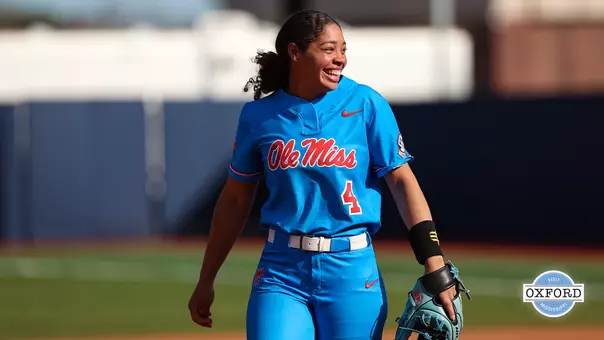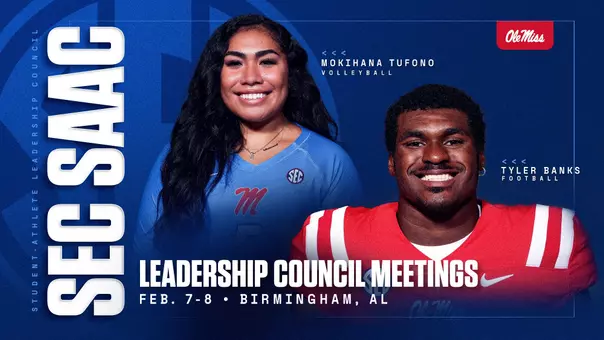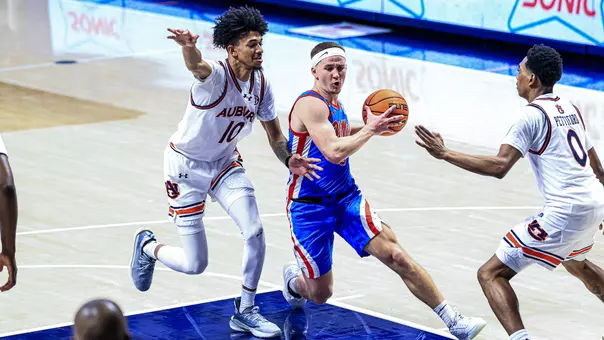The University of Mississippi Athletics
Inside Athletics: Shannon Singletary
2/1/2008 | Athletics
OleMissSports.com's Inside Athletics is a biweekly blog by the Ole Miss athletics department's senior administrators and key personnel to offer fans added insight into the overall operation of the department.
Participation in athletics has grown exponentially over the past two decades. Both male and female athletes have increased in number on all levels including both high school and collegiate sports. The rise in number of athletes unfortunately increases the number of injuries and illnesses that are contributed to sports. In order for NCAA member institutions to meet the demands of health related issues for student-athletes, a more comprehensive prevention and health care service program has evolved. The
Our philosophy is to have a proactive approach to providing a complete sports medicine program. Education, prevention, conditioning, assessment and timely treatment are the parameters that are met to ensure that all of our student-athletes maintain a healthy experience with an end result of optimal athletic performance.
Ole Miss Sports Medicine works in conjunction with the Rebel Ready program to educate our athletes on issues such as the effects of alcohol on athletic and academic performance. Despite the myth that student-athletes love to party and drink alcohol, statistics say that only 2-3 percent of NCAA athletes consume alcohol on a regular basis. We routinely bring in sports nutritionists and counselors to educate our student-athletes on the effects of drugs and nutritional supplements. With performance-enhancing drugs being easily accessible and a huge temptation in college athletics today, we spend a great deal of time talking to our athletes about the facts of such dangerous drugs.
Prevention of injuries starts with comprehensive pre-participation physicals that each student-athlete receives on an annual basis. A cardiac exam is just part of a complete medical history and physical exam that is performed on all student-athletes. This information is used to determine whether or not an athlete should compete or if any modifications need to be made to ensure a healthy lifestyle for the student-athlete. Vaccinations, such as for the flu, are offered to all athletes each year. Lab work is done on each athlete to test for such limiting conditions as sickle cell disease.
Minimizing athletic injuries would not be possible without a sound strength and conditioning program. We have nine strength and conditioning coaches that are charged with developing training programs that not only ensure peak athletic performance but also make it possible for the body to sustain the physical demands of competition in the Southeastern Conference. Our low injury rate is a direct result of the phenomenal job of our entire strength and conditioning program.
Treatment of athletic injuries begins with the athletic trainers. Ole Miss Sports Medicine has 10 certified and licensed athletic trainers. These allied health care professionals are responsible for providing quick on-site assessment, making efficient referrals to the appropriate health care providers and rehabilitation.
At Ole Miss, we are fortunate to be a part of a caring medical community. Many physicians covering a wide range of specialties donate time and resources to our student athletes.
Shannon Singletary DPT, ATC, CSCS
Senior Associate Athletics Director for Sports Medicine / Strength & Conditioning
Past Articles
| 1/17/2007 | Inside Athletics: Derek Horne | |
| 12/20/2007 | Inside Athletics: Lynnette Johnson | |
| 12/05/2007 | Inside Athletics: Karen Schiferl | |
| 11/24/2007 | Inside Athletics: Blake Barnes | |
| 11/06/2007 | Inside Athletics: David Wells | |
| | 10/17/2007 | Inside Athletics: John Hartwell |
| | 10/05/2007 | Inside Athletics: Sans Russell |
| | 09/24/2007 | Inside Athletics: Walker Jones |
| | 09/05/2007 | Inside Athletics: George Smith |
| | 09/05/2007 | OleMissSports.com Launches Athletics Blog |




